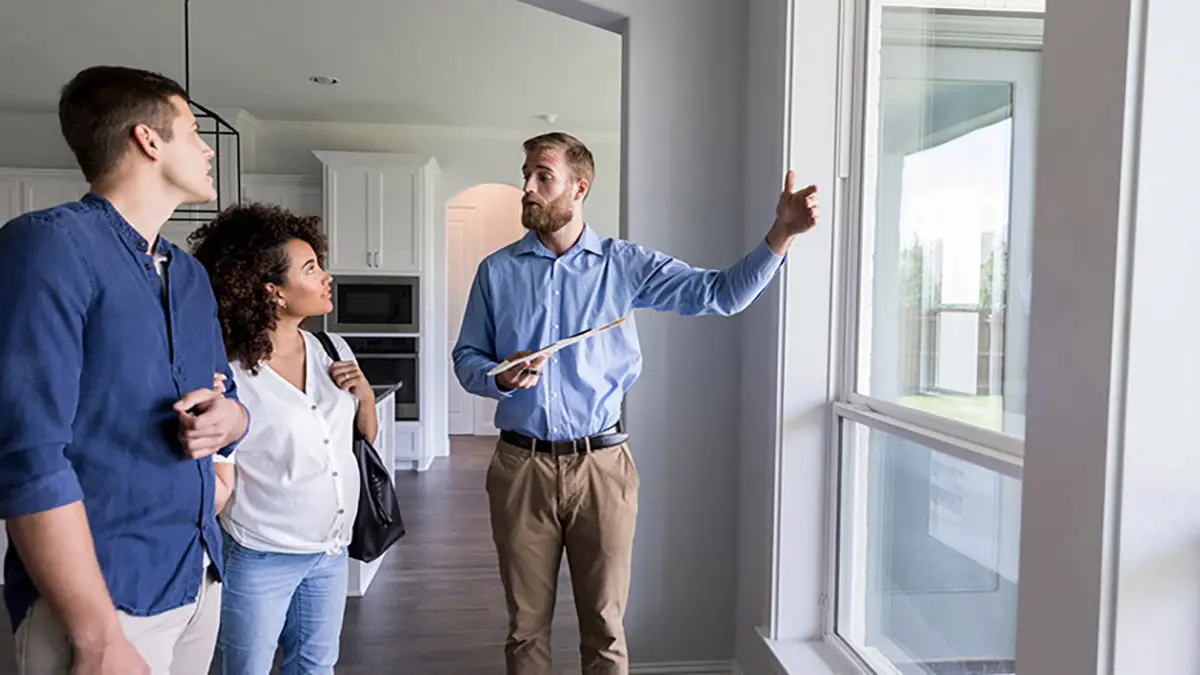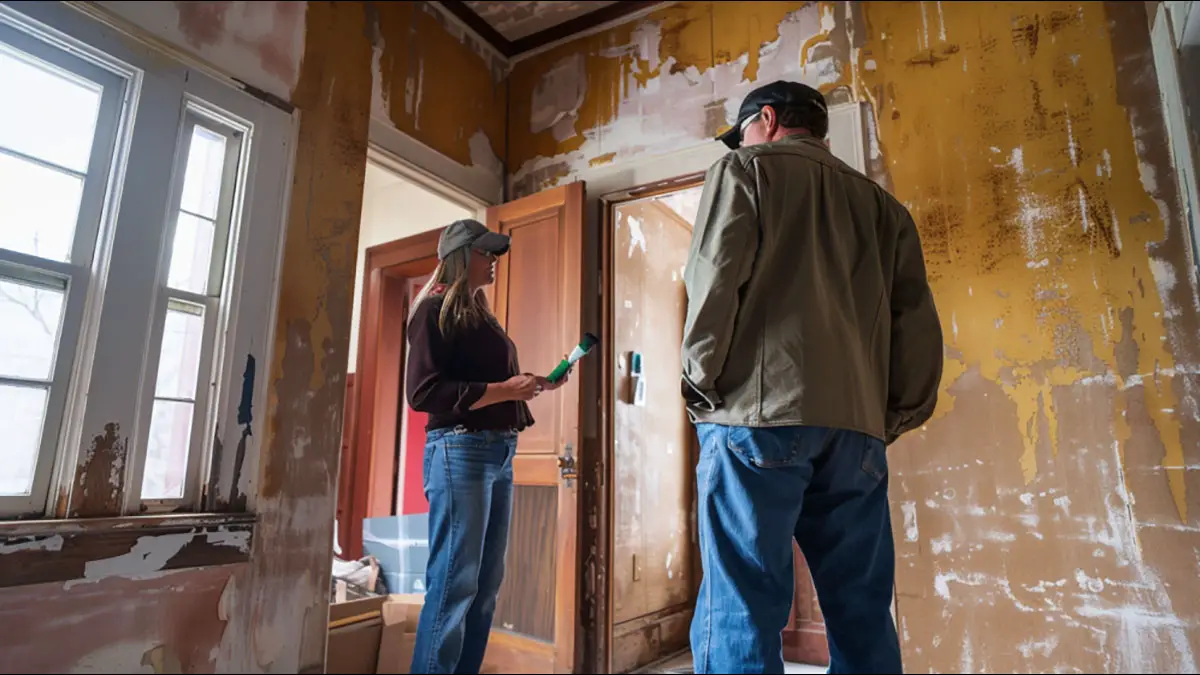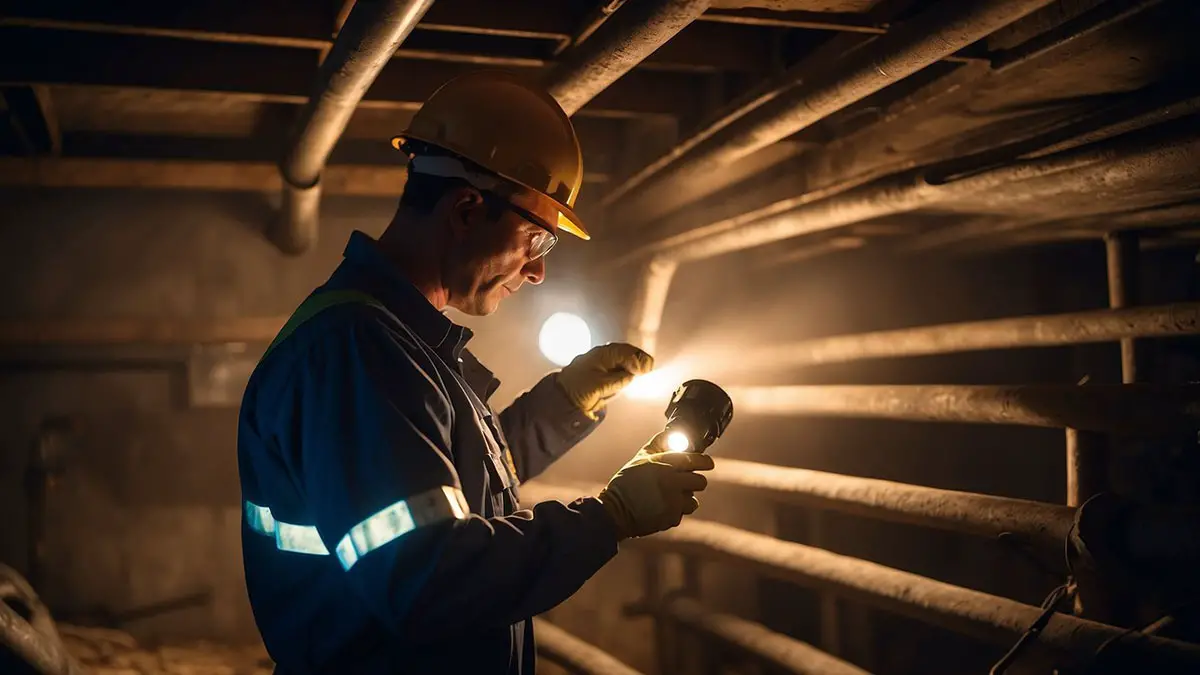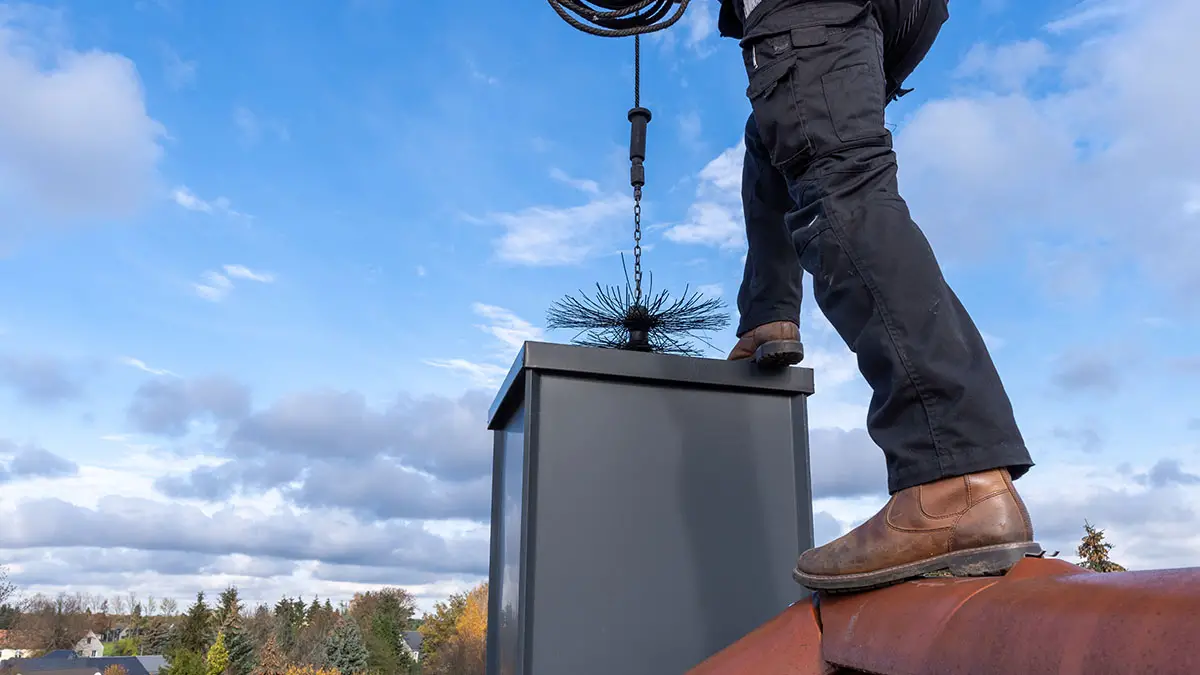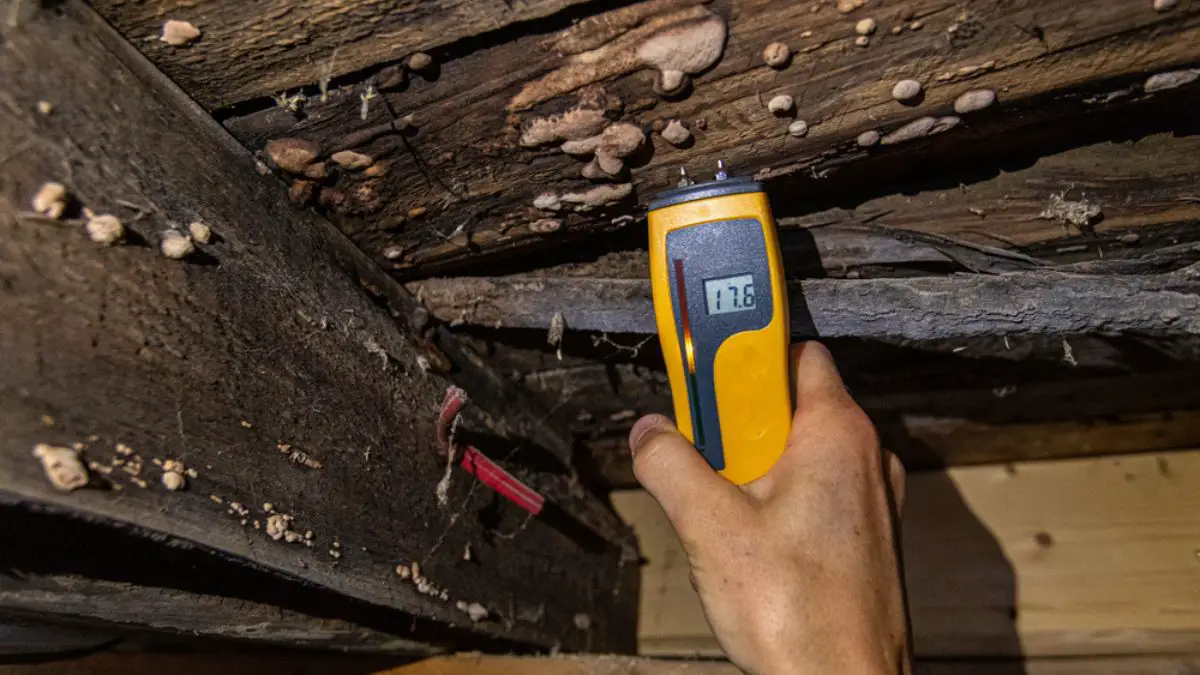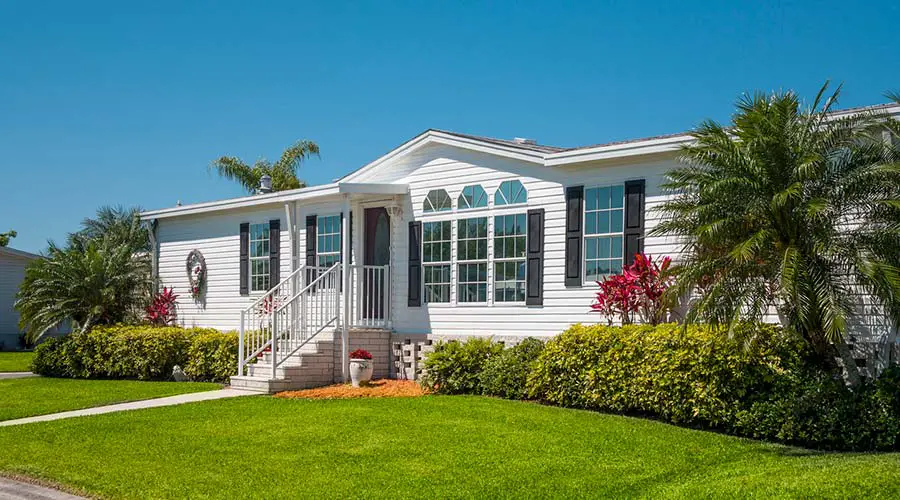
Many things in life are convenient for couples or individuals who start their lives and want to do it independently.
Mobile homes provide affordable housing options for millions of people worldwide. Understanding the quality home you are purchasing goes a long way to curbing buying regrets.
Understandably, you or a loved one may own or are looking to buy a mobile home. Truthfully, who has not considered living in a manufactured home at some point? I have owned and lived in two mobile homes in my lifetime.
Many mobile homeowners regret buying a mobile home due to specific situations and circumstances around the particular house they purchase. Many home buyers are unaware of how poorly built some mobile homes are, especially when buying an older mobile home where no construction specifics are available.
On the other hand, some manufacturer homeowners are happy with their purchase and prefer this over your typical house. They like the affordability of mobile homes and can use the money they save to buy acreage.
This article discusses many different subjects, such as the pros and cons of living in a mobile home, if they are a good investment, and if the house depreciates over time. Knowing these things is essential to grasp what to expect and what not to expect.
Are Mobile Homes a Good Investment?
Suppose you are a millennial still living with your parents or have had an apartment for a few years now.
In that case, you consider the possibility of purchasing your own mobile home. You are ready to own some land or something detached from other people.
However, you should know that purchasing a mobile home is unique and not like getting a house.
1. More Work Required
Manufactured homes require a lot more maintenance than modular homes and are a lot harder to resell if you wish to sell them in the future.
Modular homes are manufactured homes that have a permanent foundation and are deeded to land. Because most mobile homes are constructed from cheap materials, they tend to require more maintenance and upkeep.
2. Depreciate in Value
Another quick thing you need to know is that a new mobile home can drop in value relatively quickly, just like cars do.
In that case, it might be harder to sell. However, the home’s value can appreciate if you live on acreage.
3. Space Rent is Uncontrollable
You also do not control the space rent if you live in a mobile home park. Space rent inside a manufactured home community can be quite an investment and leases the land you are parked on.
If you have a traditional mortgage loan for a traditional site built home, the monthly payments stay fixed, whereas space rent can fluctuate. You will likely see lot rent increases annually when the lease is renewed.
4. You Have a Title not a Deed
Lastly, if you live in a mobile home, you’ll have a mobile home title and not a real estate deed.
You get a Real Property decal sticker, which lasts as long as the home does not get moved. You essentially are not investing in any real estate.
The mobile home is taxed as personal property, which is much higher than real estate.
5. You Do Not Get Your Investment Back
Suppose you are a young adult in their 20’s wanting to purchase your first significant investment, a mobile home.
In that case, you need to ask yourself if you will be happy with this purchase ten years down the line or if you’ll feel remorse and regret.
You should know that a mobile home will probably not give you your investment back. We will go over this more in detail down below.
Real estate agents generally can’t help you to sell the home because their is no real estate deed which will make these types of homes harder to sell later on.
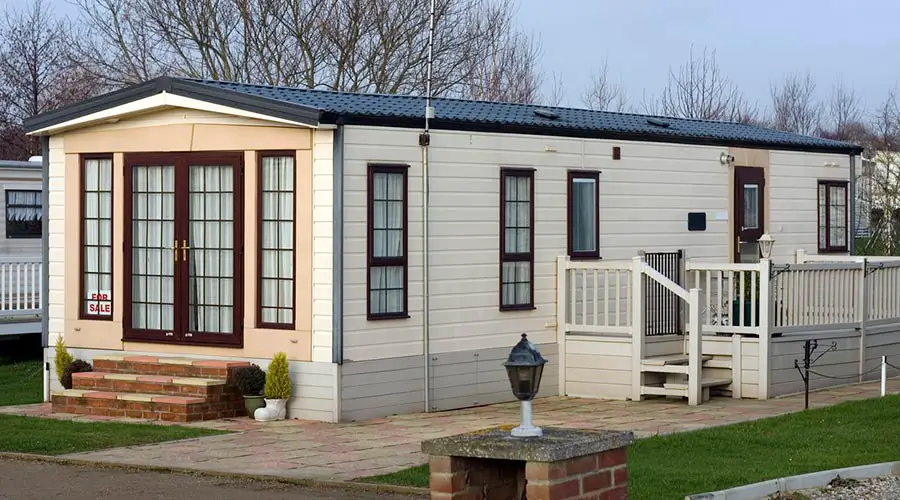
Does Anyone Regret Buying a Mobile Home?
When understanding what the best purchase for you is, you might be interested in knowing who regrets purchasing a mobile home and if it is even worth going over getting one.
People might regret purchasing a mobile home for multiple reasons. Some of these reasons can be location, while others might be the mobile home’s state.
For example, if you purchase a used mobile home, but the people who previously owned the manufactured home did not properly take care of it, such as the floor not being in good shape, you might need to do some work.
However, if you buy a new manufactured house, it might be to your liking, although if you wish to have something more custom, then a mobile home is not the answer to your problems, as they come predesigned.
On top of that, nearly 2/3rds of Millenials regret purchasing a mobile home.
A survey showed that almost 64% of Millenials (age 25 to 40) regret buying a home. On the other hand, 33% of baby boomers (age 57 to 75) also regret buying a house.
These regrets vary, like buying houses that cost too much or not understanding the maintenance of having a home.
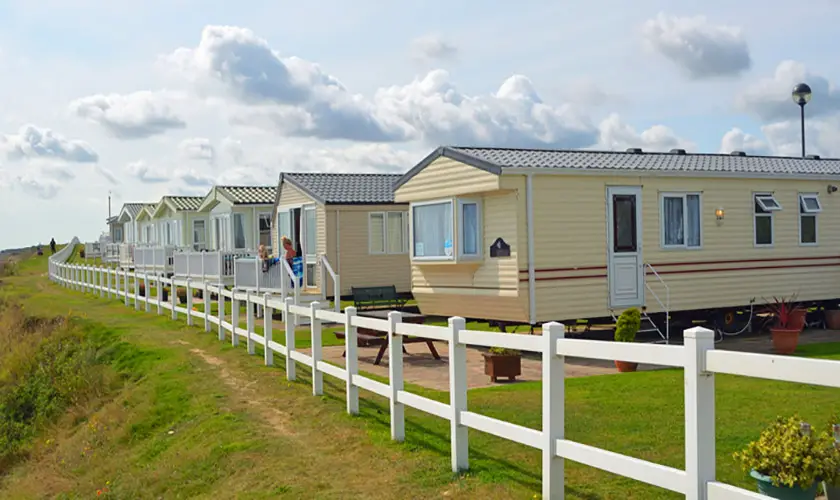
Hidden Costs of Buying a Mobile Home
If you’re considering buying a mobile home, it’s important to be aware of the hidden costs of the purchase. While mobile homes are typically more affordable option than traditional homes, there are still several additional costs that you’ll need to factor into your budget.
1. You’ll Need Land to Put the Mobile Home On
One of the hidden costs of buying a mobile home is that you’ll need land to put it on. This can be a challenge if you don’t already own land or live in an area with high land prices. Even if you own land, you may need to make some improvements to the property before moving your mobile home onto it.
If you buy an older mobile home, you may need to factor in additional hidden costs such as lot rent. Lot rent is the monthly fee you pay for renting space on someone else’s land. This fee can add hundreds of dollars to your monthly housing costs and may not be considered when determining whether or not a mobile home is affordable.
2. Moving Costs for Mobile Homes
You’ll need to consider the cost of moving your mobile home if you ever decide to sell it or move to a new location. Transporting a mobile home can be expensive, and you may need specialized equipment to get it from place to place.
As with any home, there are always hidden costs when you sell. One of the hidden costs of buying a mobile home is the expense of moving it. Because mobile homes are not attached to a foundation, they must be moved using specialized equipment. This hidden cost can add up quickly, so be sure to factor it into your budget before buying a mobile home.
3. Mobile Homes Still Require a Foundation
If you’re thinking of buying a mobile home because you think you can avoid the cost of a foundation, think again. Mobile homes require a foundation, and this hidden cost can add up quickly. The type of foundation you need will depend on the climate you live and your mobile home’s size.
foundation costs for a mobile home can range from $3,000 to $10,000, depending on your foundation type.
4. Cost of Road Construction
Another hidden cost that you must consider is the potential of road construction or even a planned development nearby. You may not be able to determine these factors beforehand. Still, when starting your search, it is important to ask about road construction and issues they have with flooding because those can significantly affect your home.
5. Cost of Land Clearing
Depending on the size and location of your property, you may need to clear some land before you can move your mobile home onto it. This hidden cost can add up quickly, especially if you have a lot of trees or brush that need to be removed.
The cost of land clearing can vary depending on the amount of work that needs to be done. Expect to pay anywhere from $200 to $2,000 for this hidden cost.
6. Taxes and Insurance Rates are Different from Site-Built Homes
For starters, you’ll need to pay for the cost of the home itself and any applicable taxes and fees. You’ll also need to pay for utilities like water, electricity, and sewer hookups. Additionally, you’ll need to factor in the cost of insurance, which is typically higher for mobile homes than for traditional homes.
7. Higher Maintenace and Upkeep with Mobile Homes
Another hidden cost of buying a mobile home is the cost of maintenance and repairs. Mobile homes are typically more susceptible to damage from weather and wear and tear, so you’ll need to budget for these expenses.
Mobile homes can not withstand most natural disasters like tornados or hurricanes. High wind speeds can easy move a mobile home off a basic block foundation. Many mobile homes won’t meet local building codes and safety standards.
8. Additional Monthly Cost of Homeowner’s Association Fees
If you live in a mobile home park, you may be required to pay monthly or yearly homeowner’s association (HOA) fees. These hidden costs can add up quickly, so be sure to factor them into your budget before buying a mobile home.
So if you’re considering buying a mobile home, it’s essential to be aware of all the hidden costs that can come with it. While there are many benefits to owning a mobile home, such as affordability and flexibility, there are also hidden expenses that you need to consider when making this significant purchase. Whether it’s paying for utilities or maintenance and repairs, being prepared ahead of time can help ensure that your mobile home purchase goes smoothly and doesn’t break the bank.
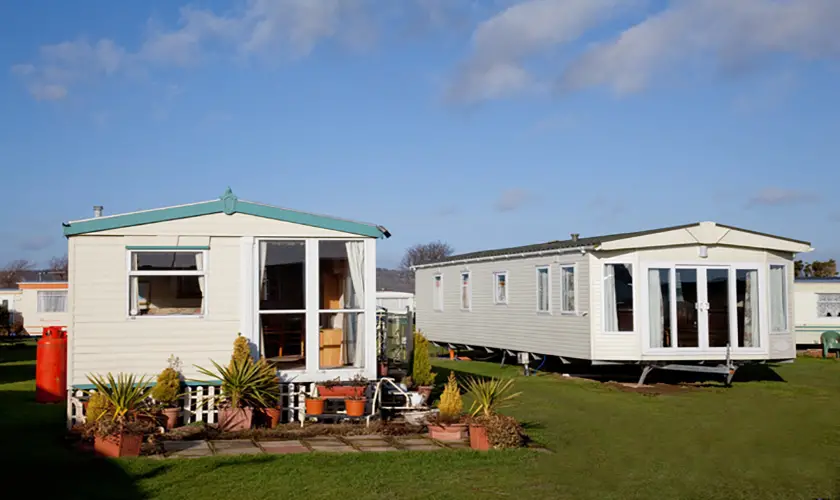
Is There a Lack of Appreciation of Mobile Homes?
Mobile homes are usually 30 to 50% lower than your traditional home, yet they make fewer manufactured houses per year. What once used to be roughly 242,000 a year between 1977 to 1993 is now 92,500 in 2017.
The decrease is because mobile houses are restricted to where they can go, and the financing might be unavailable.
Mobile home’s also do not appreciate as much as a site-built home does, making it much less tempting to purchase one in the first place.
However, recent studies show that mobile homes can appreciate just like a site-built home over time.
The appreciation comes because of the location it is in. If you, as the homeowner, properly maintain a manufactured home, then it appreciates just like a site-built house does in your surrounding neighborhoods.
For example, a study in Michigan looked at 185 manufactured homes. It compared and contrasted the average sale price when they were new compared to the resale price many years later.
The average sale value increased by $190. What used to be $26,422 (new) turned into $26,612 (used).
Although this was the average, 97 of those homes increased their home value by roughly $2,985, while the remaining 88 mobile homes decreased in value by an average of $2,822.
Another quick tidbit of homes appreciating or depreciating are as follows:
- The housing market where your home is located.
- Inflation rates.
- The age of the house itself. (Is it reasonably new or older?)
- If there is an organized resale network going on, which results in higher prices than markets without organized networks.
- The community of your home’s location. (Is it near multiple people or has land?)
- The initial price you paid for the home.
- The availability and cost of community sites (affect the supply and demand of the house’s value.)
How Long Do Most Mobile Homes Last?
Mobile homes last between 30 to 55 years, depending on the proper installation, foundation issues, and water damage.
Let us go over them in a bit more detail below:
1. Improper Installation
Once building the mobile comes complete, you might want to consider hiring professionals to install the house properly.
Otherwise, the home’s structural integrity may fail over time, and more issues will arise, especially if you do not have the required knowledge.
Still, after hiring the professional, get a professional inspector to check out your home before moving in to confirm the house is installed correctly.
2. Foundation Issues
If you do not have a good foundation, then your house is at risk of having more issues down the line as well.
One good way to know if your mobile home has a bad foundation is if it shifts.
The house shifting could be due to a poor foundation, which weakens your home’s framework over time.
If you experience foundation problems like un-leveling, then here are some things you will notice:
- Cracking walls.
- The plumbing will leak.
- Doors do not shut properly.
- Never-ending issues arising left and right.
3. Water Damage
Lastly, for your home to last a relatively long time, you’ll need to ensure no water damage has risen.
As many of you know, water damage is a serious issue that costs a lot of money to fix if the problem gets worse enough.
Once you notice water damage, it is wise to tackle it immediately. Otherwise, you are looking at a worse problem than it already is.
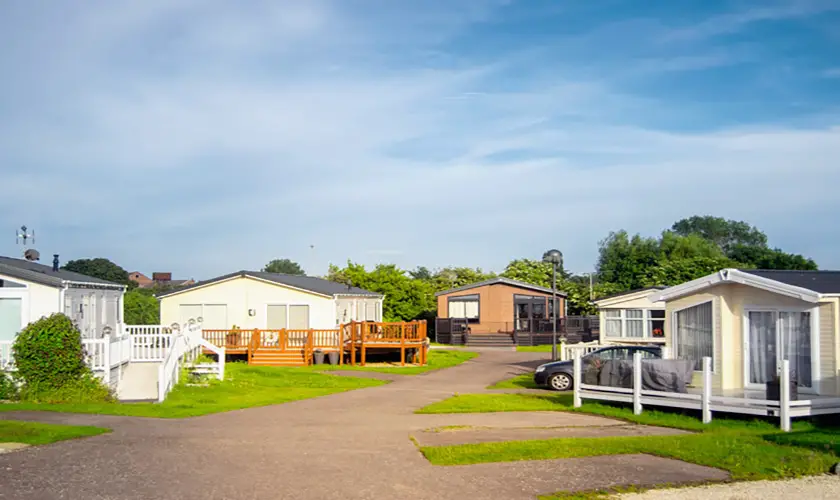
Do Mobile Homes Have Good Construction Quality?
Mobile homes possibly have good construction quality because they need to withstand harsh weather conditions.
Let us go over a few ways you might make a manufactured house from good quality below:
1. The Framing
Unlike many site-built homes built from wood framing, mobile homes have a permanent chassis (steel framing).
The steel chassis stays underneath the home even as it gets transported from the building site to the place your house stays. The steel chassis is also similar to larger trucks.
2. Factory Built
Although a mobile home cannot be custom-built, there is an excellent explanation for this.
Manufactured homes are predesigned to ensure a controlled environment throughout the building process.
These homes also get built up to HUD (U.S. Department of Housing of Urban Development) standards.
The HUD ensures the structure’s design, overall quality, strength, and durability are in excellent condition.
The HUD also looks at plumbing, electrical, fire resistance, energy, thermal efficiencies, etc.
3. Foundation
Because manufactured homes are mobile, they need to have a good foundation. As mentioned earlier, if the foundation is not good, you will have problems in the future.
These houses get placed on semi-permanent blocks or cement piers, which the home is then tied down to ensure safety against storms, wind, and other primary weather conditions.
How Can I Increase the Lifespan of a Mobile Home?
When increasing the lifespan of your mobile home, a few things need to be addressed before.
The construction material, construction process, and mobile home standards will always be of the highest quality.
However, you can do quite a few things to ensure the lifespan of a mobile home can increase. Let us go over them below:
1. Make Sure the Location is Right
Suppose you own a piece of land. In that case, the land’s value will increase over time, making it worthwhile to own a mobile home. Although you might not get much money back in the house itself, your return on investment comes from the land itself.
2. Regular Home Inspections
It is best to get a home inspector every few years to ensure the property has not tilted or sunk due to natural occurrences. Inspections also help see if your home is level or not.
3. Check Your Homes Leveling Often
Many manufactured homeowners are unaware that they often need to check for foundation and leveling issues.
Most professional installers mention you should have a professional check the process after 90 days of initial installation. After that, you should relevel your home every few years.
Releveling your mobile home will cost anywhere between $450 to $1000, depending on if you live in a double-wide or single-wide house.
Here are some quick things to look at if you feel your home needs releveling:
- Floors make a creaky noise.
- The exterior looks tilted.
- Random cracks on the walls.
- Water runs off the tables to the floor.
- Doors and windows are hard to open and close.
- The skirting or siding of your home looks buckled.
4. Upgrade Your Roof
Make sure to reseal and recoat your roof to ensure leaks, nature elements, and animals or bugs do not come inside your home.
If you choose to ignore these issues, you are looking at a shorter lifespan within your home.
5. Install Skirting
Once you install skirting under your home, you prevent little critters from making your home their haven. However, you must ensure the skirting has plenty of ventilation to avoid mold buildup.
6. General Maintenance
Like any other home, you need to provide your house with general maintenance. Here are some examples of that:
- Ensuring your exterior looks good by power washing the sidings.
- General plumbing if something goes wrong.
- Caulking the exterior seams.
- Let the professionals work on the wiring.
Can You Live Permanently in a Mobile Home?
In many cases, people who move out of their family house rent a home for a few years to save up for purchasing their own house.
However, some people still prefer mobile homes over site-built homes. Permanently living in a mobile home could be for many reasons.
Suppose you want to own a house without taking out a loan, or you do not wish to rent from someone else before purchasing a site-built home.
In that case, manufactured homes are an excellent choice and could save you money in the future due to loan interests.
Another example is if you want to live in a smaller place but rent a few properties.
Some people will purchase a site-built home and rent it out while living in a mobile home and be perfectly happy with this idea. It works well you want to live a minimal lifestyle as well. It all depends on what you prefer.
With that being said, you can indeed live in a mobile home permanently if you properly take care of it.
If you live in a mobile home for most of your life, then remember that it will see you through different areas of your life, such as getting married, having kids, heartbreaks, promotions, etc.
For those who love a good DIY project, you might appreciate making your home grow along with you.
However, some mobile home parks do not allow this to happen, so keep that in mind before doing something extravagant.
Is it Worth Living in a Mobile Home?
If you despise living in a traditional home and do not wish to live in an apartment complex or rent a house out, you might want to consider living in a mobile home.
It might be worth living in a manufactured home, mainly because they come at a great price, you do not need the best credit score, and you can customize the interior of your home.
Another great perk is that if you live in a mobile home community, they might provide fun events for their residents, making it easier to meet your neighbors and become friends.
What are the Pros & Cons of Buying a Mobile Home?
Like anything good in life, manufactured houses come with their pros and cons. First, we will discuss the pros.
Advantages of Living in a Mobile Home
1. The Price is Just Right
The bigger the house, the more expensive it gets. However, you will pay a much lower price with a mobile home than with a regular place. More often than not, you will be paying 30-50% lower than a traditional home.
2. The Location Could Be an Advantage
Suppose you bought a ton of cheap land in a rural area and want to get a mobile home to place there. Whether temporary or permanent, you might have an advantage due to your location.
However, it is best to make sure the manufactured house is in an area that works, as we will go over below.
3. Your Exterior is Protected
The materials a mobile home uses are typically PVC or wood, which might scare some people off.
However, the manufacturers of these houses put special paints and sheets to ensure further protection. Using these materials keeps harsh weather climates out inside your home and helps further protect it.
Another excellent material they use is acoustic insulators, making the interior of your home the right temperature year-round. The insulation allows heating and cooling to work appropriately and lowers your overall electric bill.
4. Mobile Homes Have a Need for Speed
Building a mobile home takes roughly 4 to 6 months from scratch to finish, making it a very speedy process. Overall, it takes much less time to build than a traditional house in some cases.
Disadvantages of Living in a Mobile Home
1. You Cannot Put the Location of the Home Anywhere
Suppose you want to live in the city and purchase a mobile home. In that case, you might want to reconsider your choices, as this is not the best place for them to be. The land you purchase for your mobile home would not be worth the price.
The best place to put your mobile home would be in the outskirts of cities, towns, or natural environments, like out in the country, beaches, mountains, or forests.
However, if you wish to move your manufactured home elsewhere, that will be costly, so choose the right location before transporting it.
2. Manufactured Homes Are Like a Second Home
It should be reluctant to have a mobile home in the city, but they are more like a second house.
Suppose you want a second home in the mountains where the birds chirp and everything are peaceful. In that case, having a mobile home is an excellent investment because you will not constantly be living there.
3. The Layout is Already Predesigned
You might have seen renovation shows on TV where homeowners pick and choose what they want inside their homes. In that case, you might be thinking you will have that same luxury.
However, this is not the case, and the floor plan has already been predesigned.
These layouts allow the mobile home to be more affordable and make things as simple as possible.
So, if you want something custom-built, you might be better off looking into a tiny home or something of the sort.
4. The Material Used Costs More Than Regular
You might be thinking that having a mobile home means cheaper quality products. On the contrary, the opposite is true. The material typically costs more.
Mobile home companies need to use a higher quality everything because using cheaply made products will cause unwanted issues that you can avoid.
These materials are in the water and gas supply, electric cables, pipes, finishes, etc.
5. Houses Made of Wood or PVC Suffer More Damage in Extreme Weather
If your house has PVC or wood, it will suffer worse in an area with extreme weather, like floods, hurricanes, and snowfalls.
It is much more so with a tornado, which can cause more damage to a mobile home than a large brick or mortar home.
On the other hand, you can go with peace knowing that mobile home companies are working on a better solution to provide you with a resistant and durable home. They want to create a safe environment even amid the storm, pun intended.
6. It is Difficult to Find Credit Without a Mortgage
Loan options are limited when it comes to mobile home financing. One primary reason is you can’t get an USDA loan or FHA loan because mobile homes don’t meet Federal Housing Administration guidelines (HUD code) unless it has a concrete foundation.
VA loans also have to HUD code to qualify.
A mobile home is not placed on a permanent foundation and not detitled (deeded real estate), causing many places not to give you a conventional loan.
Some banks offer chattel loans to purchase mobile homes, but you will still have issues with financing, like legislation.
A credit union or small local bank may offer some loan options, but even these financing options will be limited. You’ll likely be left with financing from private lenders or individuals willing to offer seller financing.
Most mobile home loans have shorter terms and higher interest rates, much like a personal property loan for a car or boat.
Conclusion
Overall, manufactured homes have great perks and downsides, so it entirely depends on what you want in a home.
Suppose you do not care to resell the property in a few years or want something relatively minor. In that case, owning a mobile home would be an excellent investment for you.
However, if this is a house you wish to sell in the future or need suitable financing, this is not the best purchase.
Keep everything in mind we discussed here, and we are confident you will make the right choice for you and your family!



